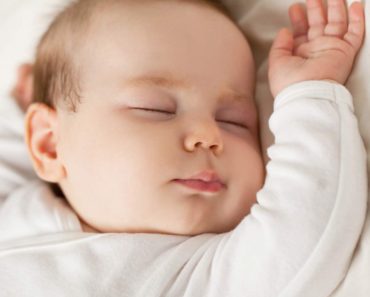
Sleep twitching in babies is related to sensorimotor development, but it may be a cause for concern, too. Learn about normal twitching and when to see a doctor.
Baby Twitching…
Have you ever watched your baby twitch in its sleep and wonder if they are okay? Are they reacting to a dream? Sometimes referred to ‘sleep starts’ or ‘sleep myoclonus’ is not known as serious condition. It is most common from birth to three years old, it has been reported that this condition usually revolves its self between the ages of two and 6 months old. Twitching does not have any long or short term effects on your baby in fact it is a sign of development. Lets have a look at the few ways twitching is associated with your babies growth and when it could be a cause of concern.
Researchers have suggested that there is a link between sleep twitching and the ability to support their heads when they are awake. It is also linked to babies understanding their limbs and what they can do with them. Another way it could help with development is when they start to reach out for objects, twitching can help them on their way to actions such as grabbing their limbs or picking up small objects . Although twitching is considered harmless there are times it can be a cause concern.
The difference between sleep myoclonus and other conditions, is it only occurs in the sleep. If you notice your baby stiffening or twitching while awake it may be a cause of concern. It is best to have them evaluated by a medial professional, just to double check they are not developing conditions such as infantile spasms, benign familial neonatal convulsions, febrile seizures, seizures and epilepsy. A diagnosis of any of these conditions requires serval medial assessments so do not worry if you see your baby twitching often, speak to your paediatrician to rule out any issues.
























